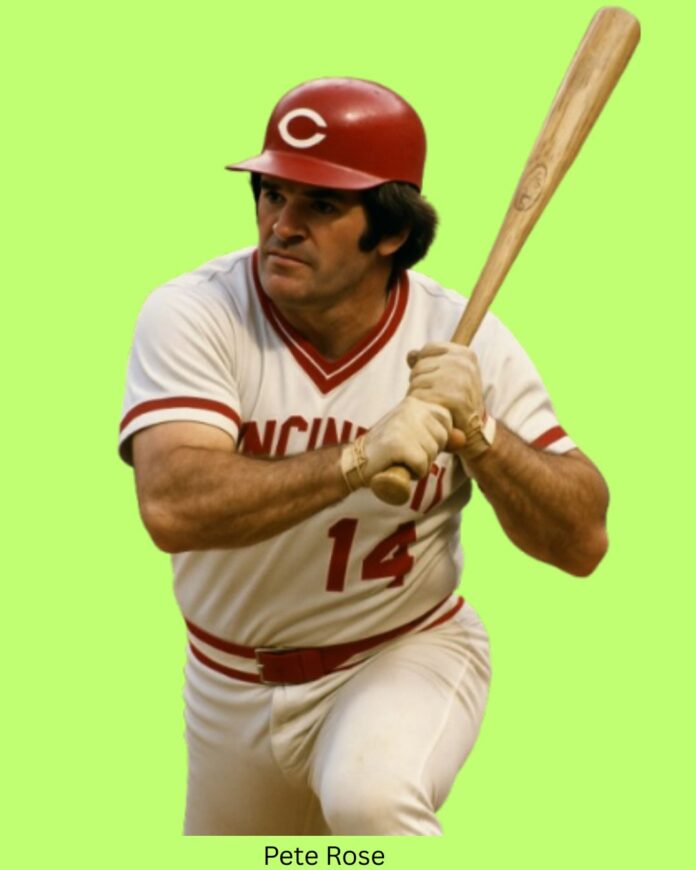In a historic, sweeping decision, baseball commissioner Rob Manfred on Tuesday removed Pete Rose, “Shoeless” Joe Jackson and other deceased players from Major League Baseball’s permanently ineligible list.The all-time hit king and Jackson — both longtime baseball pariahs stained by gambling, seen by MLB as the game’s mortal sin — are now eligible for election into the Baseball Hall of Fame in Cooperstown, New York.Therefore, I have concluded that permanent ineligibility ends upon the passing of the disciplined individual, and Mr. Rose will be removed from the permanently ineligible list.Jackson and seven other Chicago White Sox were banned from playing professional baseball in 1921 by MLB’s first commissioner, Kenesaw Mountain Landis, for fixing the 1919 World Series.In 1991, shortly before Rose’s first year of Hall of Fame eligibility, the Hall’s board decided any player on MLB’s permanently ineligible list would also be ineligible for election. It became known as “the Pete Rose rule.”Jane Forbes Clark, chairman of the board of the Hall of Fame, said Manfred’s decision will allow Rose, Jackson and others to be considered by the Historical Overview Committee, which will “develop the ballot of eight names for the Classic Baseball Era Committee … to vote on when it meets next in December 2027.” Rose and Jackson would need 12 of 16 votes to win induction.Lenkov said he and Rose’s family intend to petition the Hall of Fame for induction as soon as possible.Rose believed his banishment would be lifted after a year or two, but it became a lifetime sentence. For Jackson, who died in 1951, the ban became an eternal sentence, until Tuesday.Jackson had a career batting average of .356, the fourth highest in MLB history. After his death, Jackson’s fans, including state legislators in South Carolina, launched numerous public and petition-writing campaigns arguing that Jackson deserved a plaque in the Hall of Fame. Despite accepting $5,000 in gamblers’ cash to throw the 1919 World Series, Jackson batted .375, didn’t make an error and hit the series’ only home run.Rose often said — and stat experts agree — that he won more regular-season games (1,972) than any other major league baseball player or even any other professional athlete in history. He also won three batting titles, two Gold Glove Awards, the Most Valuable Player Award and the Rookie of the Year Award.Rose often complained that the ban prevented him from working with young hitters in minor league ballparks. On Feb. 5, 2020, Rose’s representatives filed another reinstatement petition, arguing that the commissioner’s decision to level no punishment against the World Series champion Houston Astros players for electronic sign stealing was unfair to Rose. “There cannot be one set of rules for Mr. Rose,” the 20-page petition argued, “and another for everyone else.”Trump didn’t say what the pardon would cover. Rose served five months in federal prison for submitting falsified tax returns in 1990.John Dowd, the former Justice Department attorney who conducted MLB’s Rose investigation, told ESPN in 2020 that he believes Jackson belongs in the Hall but said he would disagree with Manfred on Rose. “There’s no difference with him being dead — it’s about behavior, conduct and reputation,” Dowd said.When asked at a news conference whether Rose’s punishment should keep him out of the Hall of Fame, Giamatti said he’d leave that decision to the baseball writers who vote every year on players eligible for induction.In his letter Tuesday, Manfred referred to the Giamatti quote and said he agrees “it is not part of my authority or responsibility to express any view concerning Mr. Rose’s … possible election to the Hall of Fame. I agree with Commissioner Giamatti that responsibility for that decision lies with the Hall of Fame.”Rose was his own worst enemy. For nearly 15 years, he denied having placed a single bet on baseball. In the early 2000s, then-commissioner Selig offered Rose a chance, but with conditions, including an admission that he bet on baseball and a requirement that he stop gambling and making casino appearances.In 2017, a woman’s sworn statement accused Rose of statutory rape; she said they began having sex when she was 14 or 15 and Rose was in his 30s. Rose said he thought she was 16, the age of consent in Ohio at the time. Two days later, the Phillies announced the cancellation of Rose’s Wall of Fame induction.In the dugout before fans gave Rose a lengthy standing ovation, a newspaper reporter asked him about the 2017 allegation and whether his involvement in that day’s celebration sent a negative message to women.”No, I’m not here to talk about that,” Rose replied to her. “Sorry about that. It was 55 years ago, babe.”
The public backlash to Rose’s remarks was swift and severe. MLB sources said his comments derailed his campaign to get off the ineligible list.




